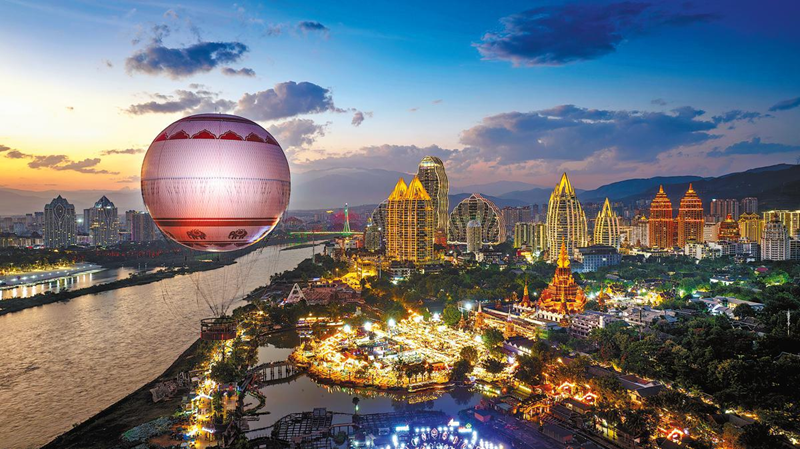'Yunnan lifestyle' emerges new trend among sojourners, elderly

Yunnan province experienced a remarkable 168 percent increase in overnight inbound tourists last year, with nearly 3.9 million people staying in the region, provincial officials said.
The trend, referred to as "traveling and residing in Yunnan", has gained momentum, according to provincial Governor Wang Yubo.
This year, the province aims to strengthen its reputation as a destination for extended stays, setting a goal of attracting 6 million sojourners, Wang said in a government work report presented during the annual meeting of the 14th session of the Yunnan Provincial People's Congress, which began on Saturday.
Sojourners are defined as visitors from outside the province who stay in Yunnan for at least two weeks but less than one year. Their reasons for staying include tourism, leisure, health recovery, outdoor activities and remote work, with the majority coming from domestic regions.
Preliminary estimates indicate that in 2024, the number of sojourners reached 3.89 million, a 20.7 percent year-on-year increase.
Seniors have also begun to take notice of Yunnan.
"Yunnan has become a popular destination for elderly health care and living," said Zhu Zhiqiang, a deputy of the provincial people's congress and chairman of Yunnan Phoenix Cultural Tourism Group Co.
Zhu said many seniors from various domestic regions choose to immerse themselves in the unique "Yunnan lifestyle". His company is developing a cultural tourism project in Yuanmou county, Chuxiong Yi autonomous prefecture.
"At our project, visitors can rent apartments starting at 3,000 yuan ($410) per month, which includes three meals a day, free access to hot springs and complimentary use of entertainment facilities," Zhu said.
Local government officials said the average house price in Yuanmou is about 4,000 yuan per square meter, with government subsidies available for homebuyers.
According to the county's tourism and culture bureau, more than 90,000 people are residing in Yuanmou, roughly half the local permanent population.
Yunnan's natural beauty, rich culture and pleasant climate continue to attract both domestic and international visitors.
In November, the provincial culture and tourism department, along with six other departments, launched a three-year action plan to develop more than 3,000 key villages catering to sojourners by 2027.
The transformation of Tuguachong in the Malong district of Qujing serves as a model for this initiative. A local cultural and tourism company revitalized over 120 idle houses in the village, adding amenities such as bookstores, cafes and art spaces.
"The new residents of Tuguachong include self-media creators, artists, writers and yoga instructors, alongside members of the indigenous population," said Wu Jing, vice-mayor of Qujing and a member of the Yunnan Provincial Committee of the Chinese People's Political Consultative Conference.
Qujing has taken a market-oriented approach to develop villages for sojourners, establishing mechanisms that benefit both farmers and enterprises. Local villagers now have opportunities to work in agricultural processing plants or start small businesses such as restaurants and shops, Wu said.
Qujing currently has six operational sojourner villages with over 90 percent occupancy rates and has identified 331 additional villages with tourism development potential. Efforts to integrate resources and expand sojourner-friendly infrastructure are ongoing, according to Wu.